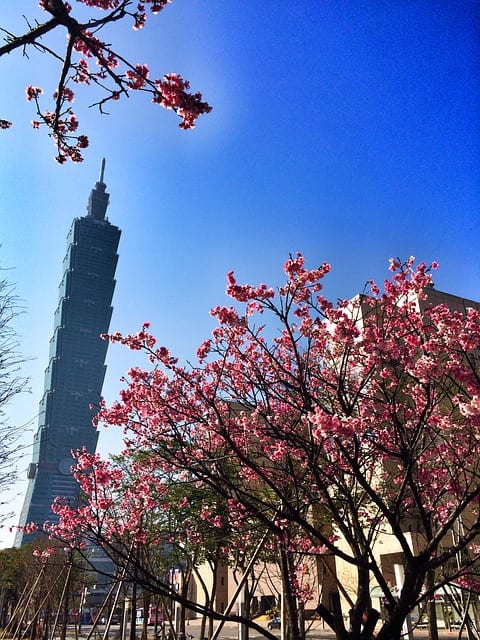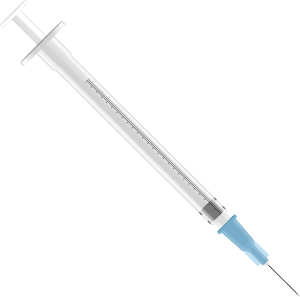
Expats Guide to Taiwan Health Care
Whether you’re an expat or a traveller visiting Taiwan, this guide will tell you everything you need to know about the Taiwan health care system.
You will learn how the Taiwanese system works, your legal responsibilities while in the country, how to receive the medical care you need and how best to pay for it.
Read on to discover the complete guide to healthcare in Taiwan…
Taiwan Health Care System
The current healthcare system in Taiwan was introduced in 1995.
The system can be seen as akin to the UK National Health Service. Indeed, the system in Taiwan even goes by the same name.
It aims to provide universal health care to residents and nationals and boasts 99% coverage. The system is highly-rated among the Taiwanese with an approval rating of over 80%.
At the same time a recent HSBC study found that Taiwan’s healthcare system is the most highly regarded among expats.
Seven out of ten expats claim that they spend less on healthcare in Taiwan than they did in their country of origin.
Coverage is extensive (but not exhaustive) and includes preventative care, prescription drugs and dental services.
Taiwan Universal Health Care
Administered by the Ministry of Health and Welfare, the Taiwan universal health care system is primarily funded by premiums taken from worker’s salaries at source.
This compulsory scheme for all Taiwanese residents and expats possessing a residency card facilitates treatment in government-approved medical centres. The medical centres are then reimbursed for their fees by the National Health Insurance (NHI) system.
Unlike some countries, however, visitors do not receive “free” healthcare; instead there is a system of “co-payments” which must be paid for care.
These are significantly discounted rates, calculated on a sliding scale as a percentage of the overall care costs. Visitors can expect to pay roughly 10-20% of the costs for care themselves, with the remainder being made up by the government.
Taiwan Health Care Costs
Average co-payments in 2014 were NT$98 for outpatient services and NT$4,704 for inpatient services.
At current exchange rates this is equivalent to roughly £2 for outpatients and £94 for inpatients.
Furthermore there are government-enforced limits on the maximum sum of co-payments any individual will have to pay.
This amounts to roughly £1,000 per illness per year.
As a result of this system, administration costs are kept to a minimum.
For comparison the USA spends roughly 15% of GDP on healthcare, while Taiwan provides comparable levels of care with just 6.5% of GDP spent.
Taiwan Health Care Pros and Cons

The Taiwan health care system offers high levels of care at typically very reasonable costs.
However as with any healthcare system there are some downsides to the current system.
For one, Taiwan lacks “gatekeepers” on medical facilities.
While in the UK patients will typically be referred to hospital after consultation with a GP, in Taiwan anyone can visit the hospital without referral.
For this reason more popular medical establishments can run near capacity at all times, leading to considerable waiting times.
Suggestions are being discussed at present whereby patients attended after referral will pay smaller co-payments than those that self-refer.
The second issue is that NHI payments only apply to government-approved medical facilities.
These are generally public facilities run by the government.
While there are a number of private hospitals, care in such facilities is generally not covered by NHI.
As a result one will either need to pay out of pocket or rely on an international healthcare policy.
For expats it is worth noting that a number of so-called “Special Clinics” exist in the private sector, specifically to service the English-speaking expat population in Taiwan.
Here one will benefit from English-speaking doctors as well as bills translated clearly into English.
Lastly, be aware that there are a number of differences between hospitals in Taiwan and those found in many other Western nations.
One of the most notable is that in Taiwan, it is expected that a family member or friend will take care of your personal care matters. If necessary, a relative will be expected to bathe and look after you.
Basic items such as towels and bedding may not be provided. In many cases a relative will sleep at the hospital, providing personal care as necessary.
This may not only seem alien to visitors from the USA or Europe, but may be highly inconvenient in cases where spouses are working or taking care of children.
This is one more benefit of opting for private medical care; patients can expect round-the-clock levels of care.
Healthcare for Expats & Travellers
Expats moving to Taiwan to work should be automatically enrolled onto the National Health Insurance system on the first day of work. Self-employed individuals will need to register themselves.
Upon registration you will be issued with a smart card known as a “Health IC”. These cards carry a photo of you (to prevent fraud) and a chip much like those found in credit cards.
Such cards carry information on prescriptions and medical records, as well as your eligibility for “free” treatment. Your card should therefore be presented whenever medical care is sought, and you may be refused care without it.
The situation is rather different for those not planning to work in Taiwan, such as tourists.
Here you will only gain illegibility to join after six months of permanent residency.
Until this time is reached you will need to pay for all medical care yourself either out-of-pocket or through the use of an overseas health insurance policy.
Interestingly, before being issued with your Health IC card, you will need to undergo an alien medical check.
A list of hospitals approved to execute such checks may be found at: http://www.cdc.gov.tw/english/info.aspx?treeid=e79c7a9e1e9b1cdf&nowtreeid=11a5b455c34bb13d&tid=3A55BC8972235072
Recommended Vaccinations
Visitors to Taiwan will be pleased to hear that there are very few health risks to be found here. That said, a number of vaccinations are recommended for your safety.
- Hepatitis A and B
- Typhoid
- Japanese Encephalitis
- Flu
- Diphtheria
- Tetanus
- MMR
We would encourage all visitors to seek professional help from their doctor in plenty of time before visiting to ensure appropriate vaccination protection.
Taiwan Health Insurance
The co-payment system means that some expats opt to pay for care out of their own pocket. Costs are typically quite reasonable. However there are a number of reasons why expats and travellers alike might consider investing in separate health insurance in their country of origin.
You Are Not Working
As only working expats are entitled to enrol on the NHI, anyone planning to retire to Taiwan or who will be seeking employment on arrival should protect themselves by investing in private health insurance.
You Are Staying Less Than Six Months
As non-working individuals staying less than six months (such as tourists) do not qualify for NHI it is wise to purchase a suitable policy before arrival.
You Wish To Use Private Hospitals
As private medical care is not covered by NHI many expats opt for private coverage in order to benefit from shorter waiting times and English-speaking doctors.
You Seek Full Coverage
Even those individuals benefitting from NHI will find that not all treatments are covered. At present the following care is not covered by the government-run system:
- Vaccinations
- Birth control
- Over-the-counter medications
- Hearing aids
- Addiction recovery
In the case that you may wish to make use of one or more of these services you might want to investigate Taiwan health insurance policies which offer such features.
Add-on Services
While NHI may cover many of the everyday medical issues experienced by expats and travellers, there are also a number of additional benefits for possessing private medical insurance. For example most health insurance policies will assist with repatriation if required, or will pay for relatives to fly out and visit you in times of sickness. Without such a policy one would need to cover these costs out-of-pocket.



